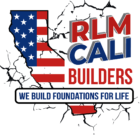How to Maintain the Condition of Your Concrete
Concrete is a wonderful feature to add to any house, but just like any other building material, it needs to be maintained and cared for in order to stay in pristine condition. Due to the fact that cold weather may be extremely damaging to concrete that has not been properly maintained, proper maintenance is of the utmost importance throughout the winter months. There is nothing that can be done to stop your concrete from sinking or becoming uneven over time, but there are a few things that can be taken to make the life of the concrete last as long as it possibly can.
Preparation for the Winter
Because cold weather is so damaging to concrete, precautions should be made to safeguard it throughout the winter months even if it is not brand new. Cold weather is the single most damaging factor to concrete. Although temperatures below freezing can be detrimental to concrete in general, the element that is most likely to cause problems is water. Because concrete is a porous substance, water will eventually make its way into the structure when the temperature is higher during the day. The water that is contained within the concrete will eventually freeze as a result of the nightly temperature drop, which will be below freezing. The expansion of the water caused by freezing can cause the concrete to split and crack, which can subsequently lead to the concrete sinking when the temperature rises again.
In order to prevent this from happening, you should try to clear away as much ice and snow from your concrete as quickly as you can, particularly if the temperature is below or just above freezing. If the snow and ice are allowed to remain on the concrete for a longer period of time, there is a greater chance that the concrete will absorb water and subsequently freeze it. No matter how old your concrete is, you should never use de-icing chemicals that contain ammonium sulfate or ammonium nitrate. These products should be avoided at all costs. Because these chemicals are fairly harsh, the concrete can become more porous and more prone to breaking as a result of being exposed to them.
Fresh Concrete in Use
There are a few extra procedures that you need to do in order to protect your newly constructed home or the new concrete that you just had put on your property. During the first year of its life, concrete is at its most vulnerable, and strong chemicals have the potential to eat away at the surface, which can result in pitting and discoloration. You should avoid using salt as a deicer during the first winter of the concrete’s life. The salt’s compounds will show to be too harsh for the new concrete, so you should avoid using them. Sand, on the other hand, is an excellent choice to make if you want to acquire a grip on icy or snowy surfaces. In addition, make sure that you do not apply any pressure on newly poured concrete for at least seven days after it has been poured. This includes not walking or driving on it. Taking this step will ensure that the concrete is good and set and that it will not instantly become cracked or uneven as a result of your actions.
Other Matters to Take Into Account
Your concrete needs to be guarded against the elements all year round, not just in the winter. Concrete is susceptible to staining from materials such as flower pots and other objects that are placed directly on top of it. Altering the order in which vases, mats, and other pieces of furniture are displayed at regular intervals will help you avoid this problem. In addition to this, any organic matter, such as leaves or mulch, should be removed from the concrete surface as quickly as possible. If appropriate action is not taken in a timely manner, the rapid degradation of organic material can easily cause discoloration in the concrete if the problem is not handled. Last but not least, in the event that your concrete does become discolored, you should aim to steer clear of aggressive cleaning chemicals that contain acids. Keep an eye out for products that have been given the all-clear for use on concrete and that are designed to tackle the particular stain that has to be removed.
Sealant is an excellent technique to protect your concrete from moisture that you do not want, and for the greatest effects, it should be applied on an annual basis.
We Are Here to Assist You
Even if you take the utmost care, there is still a chance that your concrete will settle or become uneven. We are aware of this possibility. In the event that this occurs, we are here to assist you and will work to ensure that the repair of your concrete is as pleasant as possible. Check out RLM Retrofit Foundation right away; we really are committed to giving the greatest possible level of customer care to each and every one of our clients. Take a look at the Foundation Inspection Colton service that we are now offering.
Different types of ceiling cracks and what causes them Colton
Maintenance Checklist For Concrete for Fall Colton










